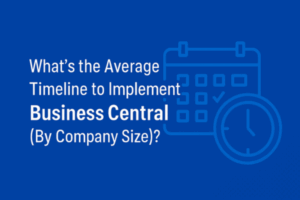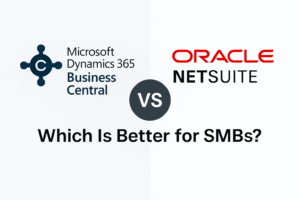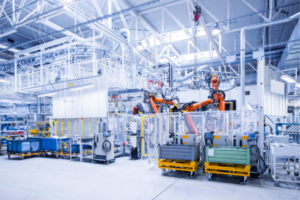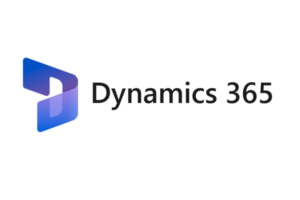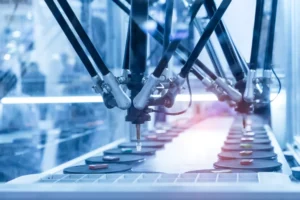The Complex Needs of Chemical Manufacturers
Chemical manufacturing is unique. It’s not just about making products; it’s about managing recipes, ensuring safety, and meeting ever-changing regulatory standards. Here are a few challenges chemical manufacturers face daily:
- Regulatory compliance with OSHA, EPA, REACH, and GHS.
- Batch processing and formula management that require adjustments based on raw material variations.
- Lot tracking and traceability for quality assurance and potential recalls.
- Hazardous material handling with strict documentation requirements.
- Shelf-life and expiration date management for raw materials and finished products.
Example: Imagine a scenario where a chemical manufacturer receives a last-minute change to a formula due to raw material concentration variations. Without an ERP system designed to handle formula adjustments, production comes to a standstill.
Why Generic ERP Solutions Fall Short
1. Lack of Built-In Compliance Tools
Generic ERPs may handle basic inventory and financials but rarely offer automated compliance reports or SDS (Safety Data Sheet) management. That leaves chemical manufacturers scrambling to piece together reports manually, adding risk and wasted time. For example, preparing for an EPA audit could take days without built-in reporting, leading to stress and potential penalties.
2. No Native Formula and Batch Management
Most generic ERPs are built for discrete manufacturing or simple product lines. Chemical manufacturers need systems that can manage multi-step formulas and allow real-time adjustments for variations in raw materials. Without this, production managers resort to spreadsheets, increasing the chance of costly errors.
3. Inadequate Lot and Batch Traceability
Without robust lot tracking, responding to quality issues or recalls becomes a nightmare. Generic ERPs can’t always connect raw material lots to finished goods in a way that’s audit-ready. In the event of a recall, this lack of traceability could cost not only money but a company’s reputation.
4. Poor Hazardous Material Handling
Chemical manufacturers need to manage hazard classifications and ensure safety protocols are built into every process. Generic systems simply don’t offer that depth of functionality, leaving safety managers to track this information manually.
5. Limited Quality Control Features
Quality isn’t optional in chemical manufacturing—it’s everything. Generic ERPs often lack built-in quality checkpoints, leading to manual workarounds and inconsistent outcomes. This can result in entire batches being scrapped, hurting both profits and timelines.
6. High Customization Costs
Many companies try to bend generic ERPs to fit their needs. The result? Expensive customizations that never fully solve the problem and become a burden to maintain. These modifications also complicate future system upgrades.
What Happens When You Use the Wrong ERP?
Choosing the wrong ERP can lead to more problems than solutions. Compliance headaches are common as businesses struggle to manually generate required reports, increasing the risk of missed deadlines and regulatory violations. These compliance gaps can result in costly penalties or failed audits.
Production inefficiencies are another major issue. Without automation and real-time batch adjustments, manufacturing lines slow down or even halt due to human error and the need for manual recalculations. This causes longer lead times, reduced throughput, and growing frustration among staff.
Inventory inaccuracies also crop up frequently. Without robust tracking, companies can either over-purchase raw materials that sit unused or experience critical shortages that delay production. Spoiled or expired materials due to poor shelf-life management lead to waste and unexpected costs.
An inability to scale is a long-term consequence. As demand grows, manual processes and spreadsheet-based workarounds simply can’t keep pace. Businesses find themselves hitting operational ceilings that prevent expansion.
Employee frustration becomes a daily reality. Staff end up spending more time fixing system shortcomings than focusing on their actual work, leading to burnout and potential turnover.
What to Look for in an ERP Built for Chemical Manufacturing
If you’re considering upgrading your ERP, focus on solutions purpose-built for your industry. Look for systems that include native batch and formula management, allowing your team to make real-time adjustments when raw material characteristics change. These features help you maintain product consistency without halting production.
Automated regulatory compliance reporting and integrated SDS management are critical to staying on top of evolving requirements without hours of manual effort. This capability reduces audit risks and helps you pass inspections with confidence.
You’ll also need real-time lot traceability that connects every raw material batch to finished products. This level of tracking simplifies recalls and provides transparency throughout the supply chain.
Integrated quality control is another must. Look for ERP systems that offer customizable testing protocols, ensuring that every product meets safety and quality standards before leaving your facility.
Don’t overlook hazardous material handling features. Your ERP should help manage classification data, label printing, and safety documentation automatically.
Finally, cloud capabilities are becoming essential. Cloud-based ERPs offer scalability, remote access, and continuous updates, helping your business grow without outgrowing the system.
How to Make the Right Choice
Start by asking for industry-specific demos and reviewing real-world use cases. Don’t settle for generic product tours; request demonstrations that show how the ERP will handle your unique chemical manufacturing needs.
Talk to other chemical manufacturers already using the system. Their insights can help you understand the real impact on operations and whether the solution delivers as promised.
Evaluate the vendor’s expertise. Ensure they have a strong track record in chemical manufacturing and understand the regulatory and operational complexities of your business.
Include all key stakeholders in the decision-making process—especially operations, compliance, and quality teams. Their input will help ensure the ERP solution addresses pain points across departments.
Lastly, plan for adoption, not just implementation. The best ERP system is only effective if your employees know how to use it. Comprehensive training and ongoing support are critical to long-term success.
Industry insight: Companies that implement industry-specific ERP systems see, on average, a 20-30% improvement in operational efficiency within the first year.
Bringing it All Together
Generic ERP systems may work for many industries, but chemical manufacturing is too complex for one-size-fits-all solutions. The right ERP will help you stay compliant, improve product quality, and scale with confidence.
If you’re ready to explore an ERP designed for chemical manufacturers, check out how Alchemy 365 is built to handle batch processing, regulatory reporting, and more without the need for endless customizations.
Related Reading: The Ultimate Guide to ERP for Chemical Manufacturing



